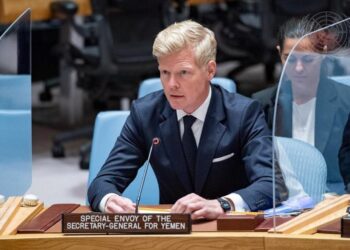To resolve their maritime border dispute after years of tensions, Iraq and Kuwait have now begun rapprochement.
As Iran and Saudi Arabia are now opening up their embassies in Tehran and Riyadh to restore their relations after seven years of stalemate, similar moves appear to have been taking place between Kuwait and Iraq, promising a more stable Middle East in the near future.
It was last month that Kuwaiti foreign minister Salem Al-Sabah paid a surprising visit to the Iraq’s capital city of Baghdad and met his Iraqi counterpart Fuad Hussein and later Iraqi prime minister Mohammed Shia Al-Sudani.
Reports from state media of both countries suggested that during the unprecedented visit, the Kuwaiti to diplomat addressed the bilateral relations between the two nations and asked Iraq to urgently tackle the longstanding and contentious maritime border dispute over the Khor Abdullah waterway, a major source of cold relations between Iraq and Kuwait over the past years.
What added to the significance of the diplomatic visit was that it was held as Iraq is experiencing a bit of a chaos in northern Baghdad in the city of Kirkuk. This, however, doesn’t signify that Iraq is unsafe. These days, the country is hosting millions of pilgrims from across the world who are in Iraq now to take part in the Arbaeen walk, a religious ceremony to honor the 40th days of the martyrdom of Imam Hossein, the third Imam of Shia Islam.
Political Experts believe that the implications of raproachment between Iraq and Kuwait is valuable for regional stability, and resolving the maritime border dispute can be the first step towards this important goal.
Where does the border dispute come from?
The border dispute between Iraq and Kuwait is centuries old. Back in 1990, Saddam’s forces entered oil-rich Kuwait in August that year and annexed it to his country.
On August 9 that year, Operation Desert Shield, the American defense of Saudi Arabia, began as U.S. forces raced to the Persian Gulf. Iraqi dictator Saddam Hussein, meanwhile, built up his occupying army in Kuwait to about 300,000 troops. On November 29, the U.N. Security Council passed a resolution authorizing the use of force against Iraq if it failed to withdraw by January 15, 1991.
At first, the Iraqi dictator refused to withdraw his forces from Kuwait, which he had established as a province of Iraq, and some 700,000 allied troops, primarily American, gathered in the Middle East to enforce the deadline.
In the end, and after six weeks of fight, Hussein finally succumbed and signed a cease-fire agreement and released Kuwait. After the war, Iraq was required to submit to inspections to ensure it possessed no chemical or other weapons of mass destruction. Iraq was also forced to pay compensation to Kuwait. In 2021, Baghdad made the final payment of war reparations totaling more than $52 billion to its neighbor.
Although the two countries have been able to resolve land border disputes in the past years, the maritime border has remained a point of contention to today. It is therefore of pivotal importance to the peace and stability in the region, especially at this time, that Iraq and Kuwait can resolve their old disputes and normalize their relations.






![Nuh Demolition Campaign; Is India Following Israel's Track? [part I]](https://al-sarira.com/wp-content/uploads/2023/09/IMG_0821-75x75.jpeg)
